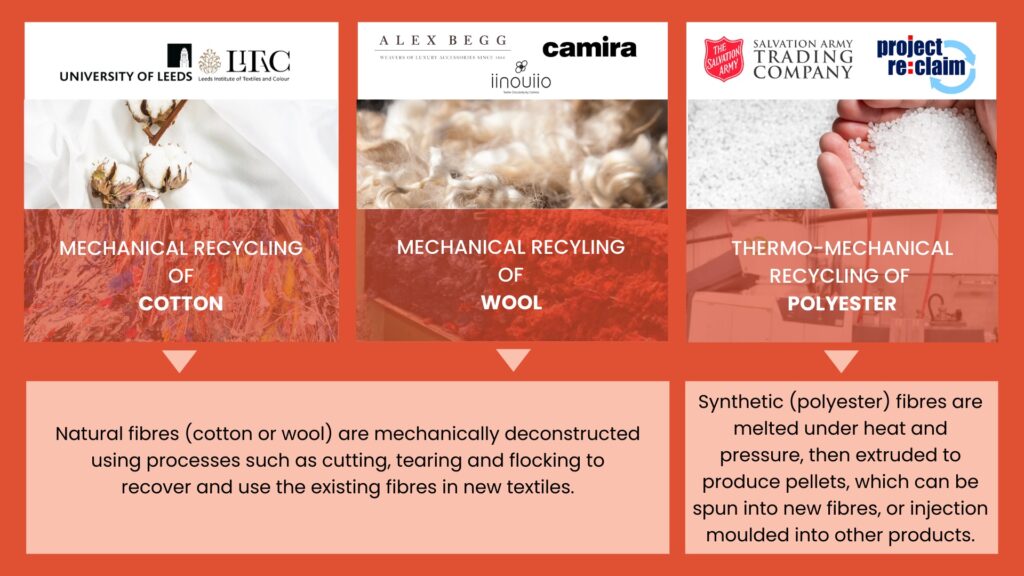Circular Textiles Ecosystem
- Recycling Supply Chain Trials
- Business Case for Circular Textile Ecosystem
Through ACT UK, we are not only looking at the development of the ATSP blueprint for the UK, but also providing a proof of concept for a circular textiles ecosystem.
Recycling Supply Chain Trials
ACT UK has conducted recycling trials with the aim to prove that non-rewearable post-consumer textiles can successfully be processed into new fibres through fibre-to-fibre recycling systems. In these trials, post-consumer textiles were sorted and prepared as feedstock for recycling systems and transformed into new fibre and yarn.
The results from these trials will be shared during Q2 2025 as part of the ACT project Final Report.

Business Case for Circular Textile Ecosystem
The project has analysed current and future scenarios of non-rewearable textiles flow in the UK, including its socio-economic and environmental impact. This is to build the positioning of the UK’s future textiles recycling landscape and next phase UK manufacturing.
Through the in-depth research conducted as part of the ACT UK project, Advanced Textile Sorting and Pre-processing facilities (ATSPs) show great promise in streamlining the sorting process through automation, reducing sorting costs and increasing input/output capacity and quality.
Two reports are now available which consolidate this research on the feasibility and viability of implementing ATSPs in the UK.
- The report ‘Advanced Textile Sorting and Pre-processing Facilities: The Business Case’ sets out the business case for developing the first ATSP in the UK, including detailed market analysis with operational and cost modelling for businesses so that the UK textiles sector can increase the value of this feedstock for textile recycling nationally and globally.
- The report ‘Transitioning to a UK Circular Textiles Ecosystem’ considers the wider social, environmental and economic impacts, as well as the benefits and opportunities that material circularity could bring to the sector.
